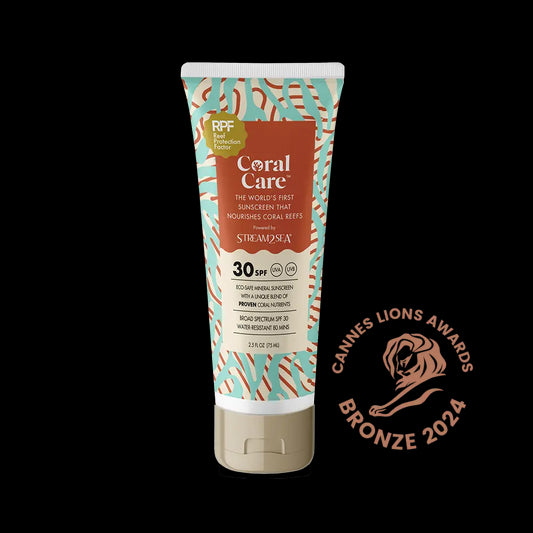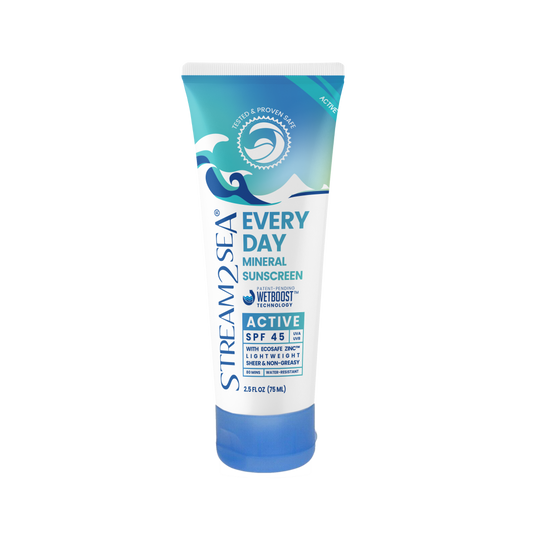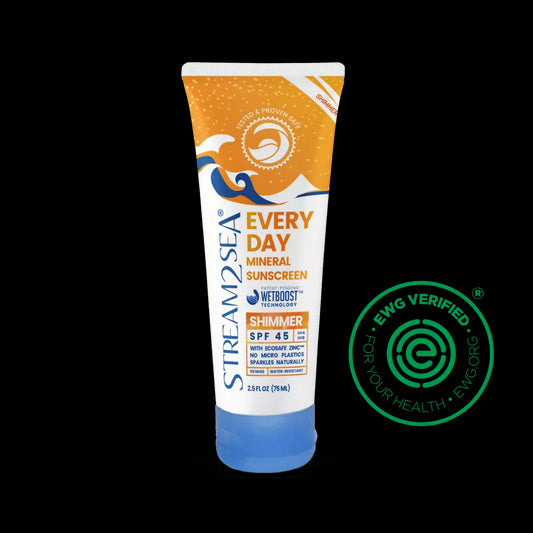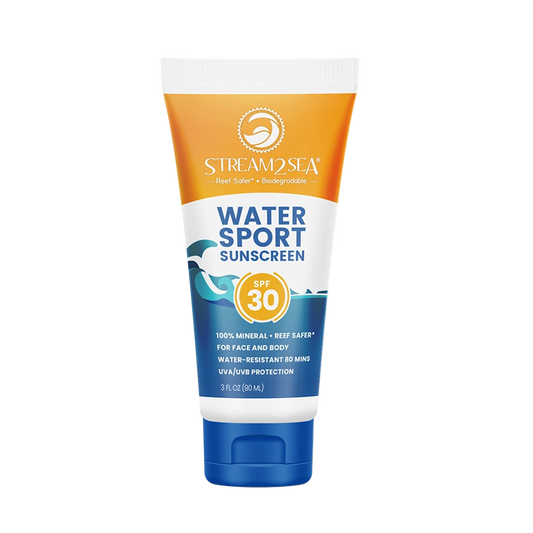Share
I was so proud of my first formula for Stream2Sea—a biodegradable shampoo with all natural, Whole Foods and EcoCert compliant ingredients.
I’d thoroughly checked the safety information, carefully avoiding the known toxicants like sodium laureth sulfate and silicones, then tried it out and loved the performance. But since reef-safe is my personal passion, I took one additional step and sent it off to be tested for aquatic safety.
Every single fish—the entire tank full—died.
Surfactants lower the surface tension of water, literally making water 'wetter.' This is why and how they make sudsy cleaners like shampoo and laundry detergent work. They are not, in general, safe for fish, and swimming without surface tension probably suffocated them.
Of course, I immediately started reformulating, digging even deeper into the safety and mechanism of each ingredient. But it also made it incredibly clear to me—a long-time supporter of the Leaping Bunny promise of no animal testing—that reef-safe products do require some animal testing. There's just not enough data and history to really know what will be safe for our aquatic friends.
Surfactants, like sunscreen ingredients such as oxybenzone, are not typically captured in wastewater treatment plants. Best-case scenario—they biodegrade quickly so that concentration rates don’t become an issue. Worst-case scenario takes me back to why I originally started this company—seeing a sunscreen slick come off a group of snorkelers, and then watching people on the deck of our live-aboard wash their hair with fragrant suds streaming into the water directly over a pristine coral reef.
My marketing team doesn’t necessarily like the word “biodegradable” because most people don’t get why it’s so important. Reef-safe and ocean-friendly are much more easily understood. But biodegradable is a critical component of any reef-safe product, whether it’s shampoo, sunscreen or body lotion.
Any compound that isn’t readily biodegradable in real-world situations—not just highly aerobic lagoons at a wastewater treatment facility—is likely to accumulate faster. That means it will show up in higher and higher concentrations either in water, potentially killing fish, or in the case of chemicals like oxybenzone, in fish and coral.
Our shampoo doesn’t have quite as many suds you might expect with a mainstream brand, but it still performs brilliantly and there are a lot more important issues than fragrant bubbles to consider when you’re making decisions that affect our ecosystems. Whether you are showering off a boat, camping by that beautiful lake, or simply living in your own home, you can feel confident using our tested and proven safe formulas.
![[S2S] After-sun Care](http://stream2sea.com/cdn/shop/collections/SPF30_and_Sun_Sting_Gel.jpg?v=1764789810&width=1500)



